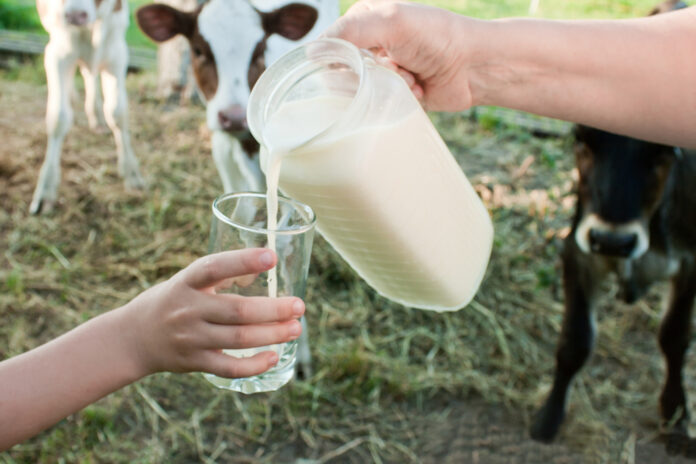
While milk does contain nutrients, including vitamin D, protein, and calcium, adults are most likely getting those vitamins elsewhere in their diet and don’t necessarily need to drink milk. Of course, many adults like milk and choose to drink it simply for that reason.
Experts say that if adults choose to drink cow’s milk, they should stick with lower fat varieties and leave the other kind for the kids.
How Much Calcium Is in Milk?
The amount of calcium in various milk varieties varies. Whole milk offers 276 milligrams of calcium per eight-ounce cup, whereas skim milk has 299 milligrams. One type of almond milk has almost the same amount of calcium in it as 61 milligrams of unfortified soy milk. Most plant-based soy milk is calcium-fortified and includes 25% to 50% of the adult’s recommended daily amount of calcium. Plant-based milk, however, might not necessarily be better for you than cow’s milk. For instance, they can have added sugars.
Despite the vitamins we get in our diet, making milk less of a need as adults, as we continue to age, our Vitamin D needs increase. This would mean our need for milk may ebb and flow over time depending on our diets and our age.
Benefits of Cow’s Milk
- There are several benefits to cow’s milk, in addition to the nutrients it provides. Milk is thought to help control your appetite. In fact, a 2013 study showed that dairy not only helped participants feel fuller but drinking it also reduced how much fat they ate overall. It is thought that dairy intake may lead to lower weight and prevent weight gain.
- Milk consumption is also good for bone density, which is essential when we are children, but as we age, it becomes vital as well. It strengthens not just our bones but our teeth and muscles as well.
- Another study showed that milk might help prevent type 2 diabetes, noting that the protein in milk might help balance blood sugar.
- In addition to balancing blood sugar and building a strong framework, milk may benefit our hearts. Increases in HDL (good) cholesterol levels may be aided by milk fat. Healthy HDL cholesterol levels may shield against heart and stroke problems.
- Milk is a good source of potassium as well. This element supports blood pressure control. Cows raised in pastures or on grass provide milk richer in conjugated linoleic acid and omega-3 fatty acids. These fats aid in maintaining blood vessels and heart health.
Summary
While adults might get some of the nutrients from milk from other places in their diet, you can see that cow’s milk has other benefits as well that make it a good choice in your daily routine. If you have questions or concerns about your milk routine, talk with your doctor to develop a plan.


















